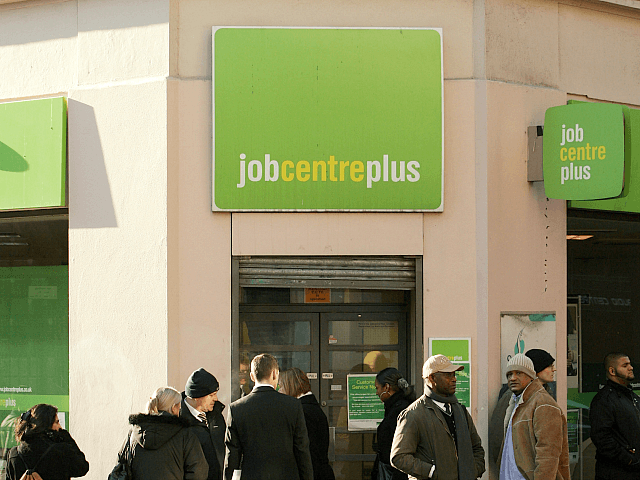The employment rate has hit a record high of 75.1 per cent and unemployment has fallen to a 42-year-low of 4.4 per cent, defying warnings that the Brexit vote would throw 500,000 people out of work.
The Office for National Statistics (ONS) figures are another nail in the coffin for the Remain campaign’s Project Fear, headed by the then Chancellor of the Exchequer George Osborne.
The figures also reveal that some 317,000 migrants in Britain are unemployed. 98,000 of these were born in the European Union, although a much larger number — 219,000 — were born further afield.
Only around 13 per cent of the country’s total population is foreign-born, meaning migrants are significantly overrepresented amongst the ranks of the unemployed — a heavy blow to the establishment politicians and open borders advocates who have long argued that mass immigration is an economic boon.
This follows a University College London study which determined that whilst recent migrants from the EEA — the European Union plus Norway, Iceland, and Liechtenstein — made a positive contribution to Britain’s coffers in the decade up to 2011, immigration overall had a net negative impact of some £95 billion between 1995 and 2011.
The jobs market’s strong performance has, once again, dumbfounded the ‘experts’, who expected a more muted showing.
The Telegraph even reports Lloyds Bank analyst Nikesh Sawjani as conceding that “wage growth [is] showing some tentative signs of picking up and headline inflation [seems] close to its peak”.
He added: “[T]he squeeze on the consumer may be starting to ease.”
Commenting on the latest release of statistics, Lord Green of Deddington, Chairman of Migration Watch UK, said they also disproved another myth, that the Brexit vote was driving away foreign workers. He said: “Despite all the scare stories of an exodus of EU workers, we have seen a fall of only 2% from 25 countries and a continued massive inflow from Romania and Bulgaria.
“This increase of 87,000 is enormous and the need to control EU migration could not be clearer.”
The news follows the HIS Markit Report on Jobs appearing to show that, as the supply of cheap workers from (primarily) the European Union into Britain dwindles or, at least, eases, parts of the country have seen a “steep increase” in permanent and temporary job hiring, with Scots enjoying salary growth at a 10-month high.
Brexit campaigners have long argued that a reduction in immigration would lead to higher pay and employment, but this has been opposed by both left-wing politicians — who believe a steady inflow of outsiders will help to create a multicultural “open society” — and by so-called “fiscal conservatives”, who believe employers need a “flexible labour market”.
Perversely, mass migration advocates such as Scottish Tory leader Ruth Davidson are using the improved employment situation to argue for a continuation of their policy, claiming that it proves the domestic workforce is inadequate to fuel growth.

COMMENTS
Please let us know if you're having issues with commenting.